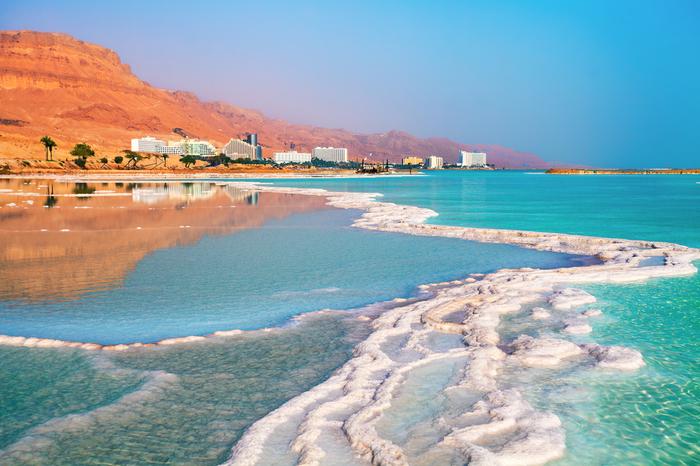What are the Benefits of the Dead Sea Cosmetics? How Do You Tell the Real Ones & Fakes Apart?
Dead Sea is the lowest point on Earth – it is made up of 30% of minerals whereas water makes up 70% of the sea. It is rich in as many as 21 minerals – you won’t find more than half of them elsewhere. Magnesium, potassium, sodium, chromium, zinc, manganese, bromides, iodine, sulfates, chlorides and carbonate minerals are the most important ones. What are the benefits of Dead Sea cosmetics and how do you know which ones are real?
Dead Sea cosmetics – ingredients & benefits
Dead Sea borders Israel and Jordan and it is the saltiest sea in the world. It is rich in potassium and magnesium salt. The salt is rich in:
- magnesium,
- potassium,
- calcium,
- bromide.
Magnesium iodides penetrate the skin, hydrating the skin and balancing the work of sebum glands. Potassium ensures the water balance in the body and increases the resistance of the skin to the external factors. Calcium, on the other hand, has anti-inflammatory and anti-allergic properties. Bromide takes part in the creation of AMP hormone – responsible for the skin exfoliating and repairing processes.
Dead Sea salt and mud are most common in cosmetics.
How do you know your Dead Sea cosmetic isn’t a fake?
Many commercially-available cosmetics have Dead Sea minerals included but the salt, which these products contain, doesn’t always come from the Dead Sea. To check it out, you should read the list of ingredients on the packaging. If a cosmetic contains Dead Sea salt, INCI should say Dead Sea Salt – 100% (INCI of fakes: Maris Salt – 100%). If a product includes Sodium Chloridel NaCl, it means it’ just common salt which has nothing to do with beauty or health. The colour of cosmetics might give you a clue but it doesn’t have to. Common salt is white whereas Dead Sea salt has a darker shade. However, manufacturers can achieve different colours using colourants. The taste is the only reliable criterion but you can only check it if a product doesn’t contain any additives. Table salt is salty whereas Dead Sea salt is bitter. What’s more, Dead Sea salt is intensively-hydrated so it seems wet or oily long after opening.

